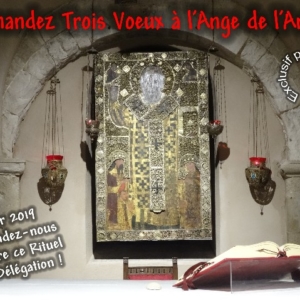Through the laws of Kabbalah, each of the 150 psalms were given what the ancients called a "Wonder of God." So, to obtain a grace from the Lord, it was not enough to sing the psalm indicated, it was also necessary to perform a "plus" that allowed to be in adequacy with the Lord ...
The oldest Psalms have 3 000 years! King David, singing and dancing for God, is considered their father. Prayer of the believing Jew, as was the case of Jesus himself, the Psalms express all the human feelings of man before God, they are a prayer of praise and supplication. And since then, there is not a single moment when, somewhere in the world, a Psalm is raised to God. And thus, for centuries and centuries, these incessant praises and miraculous supplications have been realized.
"O LORD, I call on you, come hurry to me! Give ear to my voice, when I call on you. May my prayer be before your face like incense "(Ps 141: 1-2). Since those early times, men have sought to enter into communication with God. The Psalms are therefore part of these means.
In time, codifications and methods of recitation were instituted. For example at present, the Universal Catholic Church uses in the liturgy 147 psalms on the 150 of the biblical book. Thus, at each office, the psalms are the body of the prayer of the Church, the raw material of the Liturgy of the Hours.
But leave that aside to look at how early Christians used these psalms with wonderful powers. This way, much less conventional than the Liturgy of the Hours, is strongly inspired by the Jewish tradition which itself is much more inclined to rites and rituals. Through the laws of Kabbalah, each of the 150 psalms were given what the elders called a "Wonder of God." Thus, to obtain a grace from the Lord, it was not enough to sing the psalm indicated, it was also necessary to perform a "plus" that allowed to be in adequacy with the Lord.







